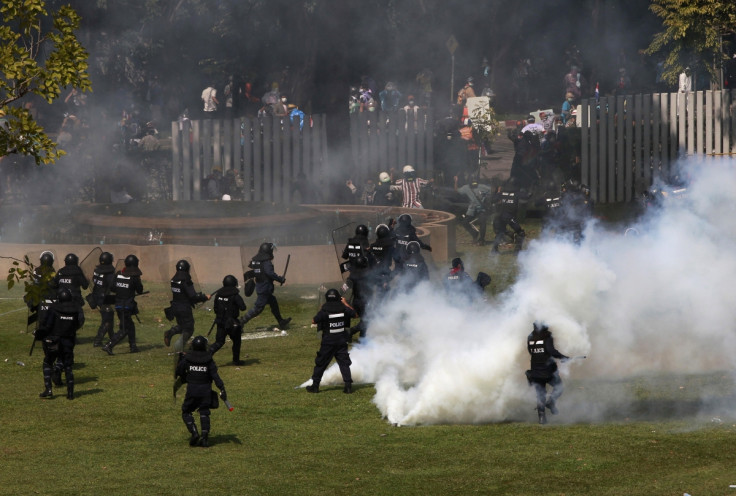Thai Political Crisis: Bangkok Protesters Clash with Police over Elections

About 500 Thai protesters clashed with police at the Thai-Japan youth stadium in Bangkok where election commissioners were registering candidates for the upcoming snap elections in February.
The protesters tried to barge into the stadium and threw stones at the officials who were working with the candidates of at least 27 political parties preparing for the elections.
It was the first violent incident in over two weeks of daily protests in Bangkok, as the police fired tear gas shells and rubber bullets to prevent the protesters from entering the stadium.
At least three officers were injured and four election commissioners had to leave the stadium in a helicopter, while the registration process was duly carried out despite the resistance outside the gates, according to AP.
There were no reports of serious injuries but it was unclear how many protesters were hurt in the clashes that stretched into the morning.
The anti-government group is demanding constitutional reforms and an unelected "people's council" to take power before the next elections.
The opposition leader and former MP Suthep Thaugsuban has often expressed concern that the incumbent government will find devious means to win the next elections and come back to power.
The Democrat Party, the country's main opposition party, has boycotted the elections and pledged its support to the anti-government demonstrations in a sustained campaign to topple caretaker Prime Minister Yingluck Shinawatra.
Yingluck had announced a compromise formula to the National Reform Council to end the crisis, but it was rejected by the protesters, according to AP.
The opposition parties and demonstrators are now orchestrating a civil disobedience movement to bring down Yingluck's government.
Anti-government supporters say that Yingluck is only serving as a proxy for her brother, Thaksin Shinawatra, the ousted former premier, who is in a self-imposed exile after being convicted of corruption charges in 2008.
Meanwhile, a special security law has been extended for two more months to curb the opposition protests.
© Copyright IBTimes 2025. All rights reserved.





















